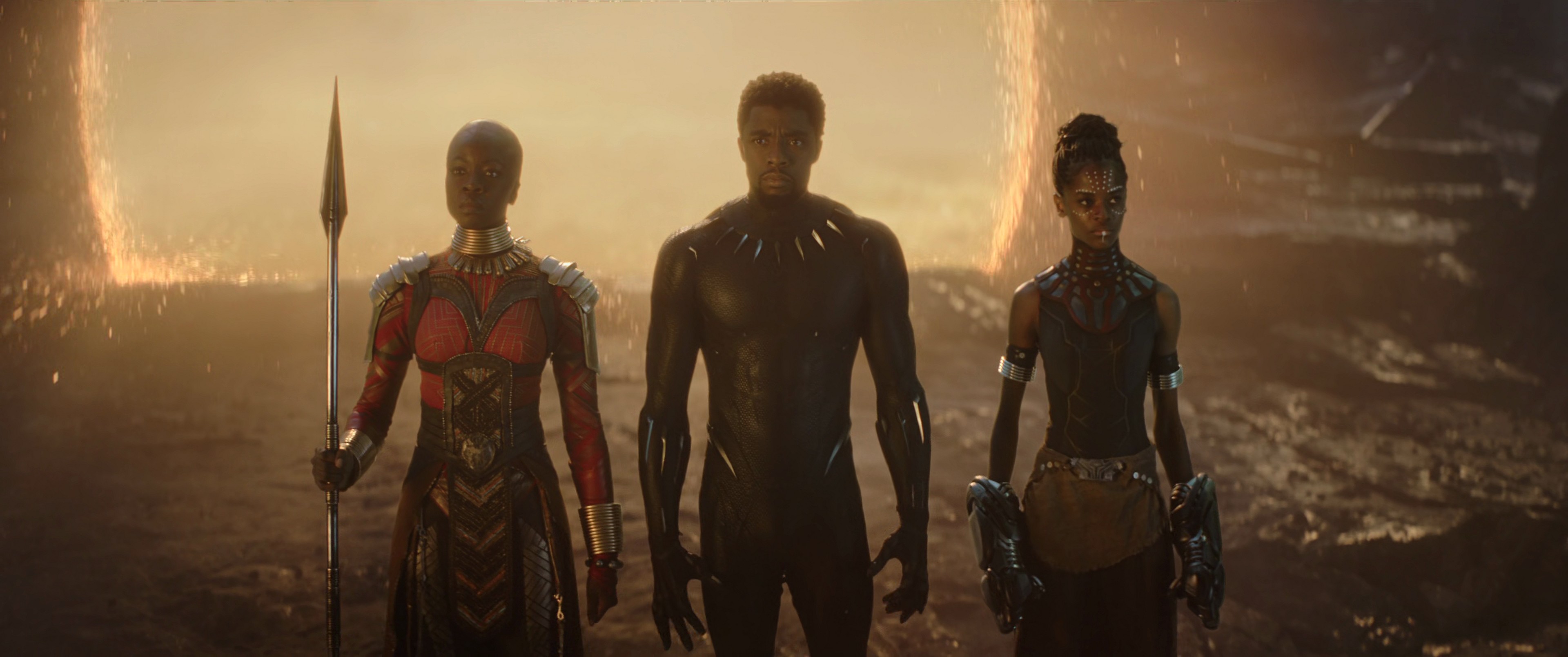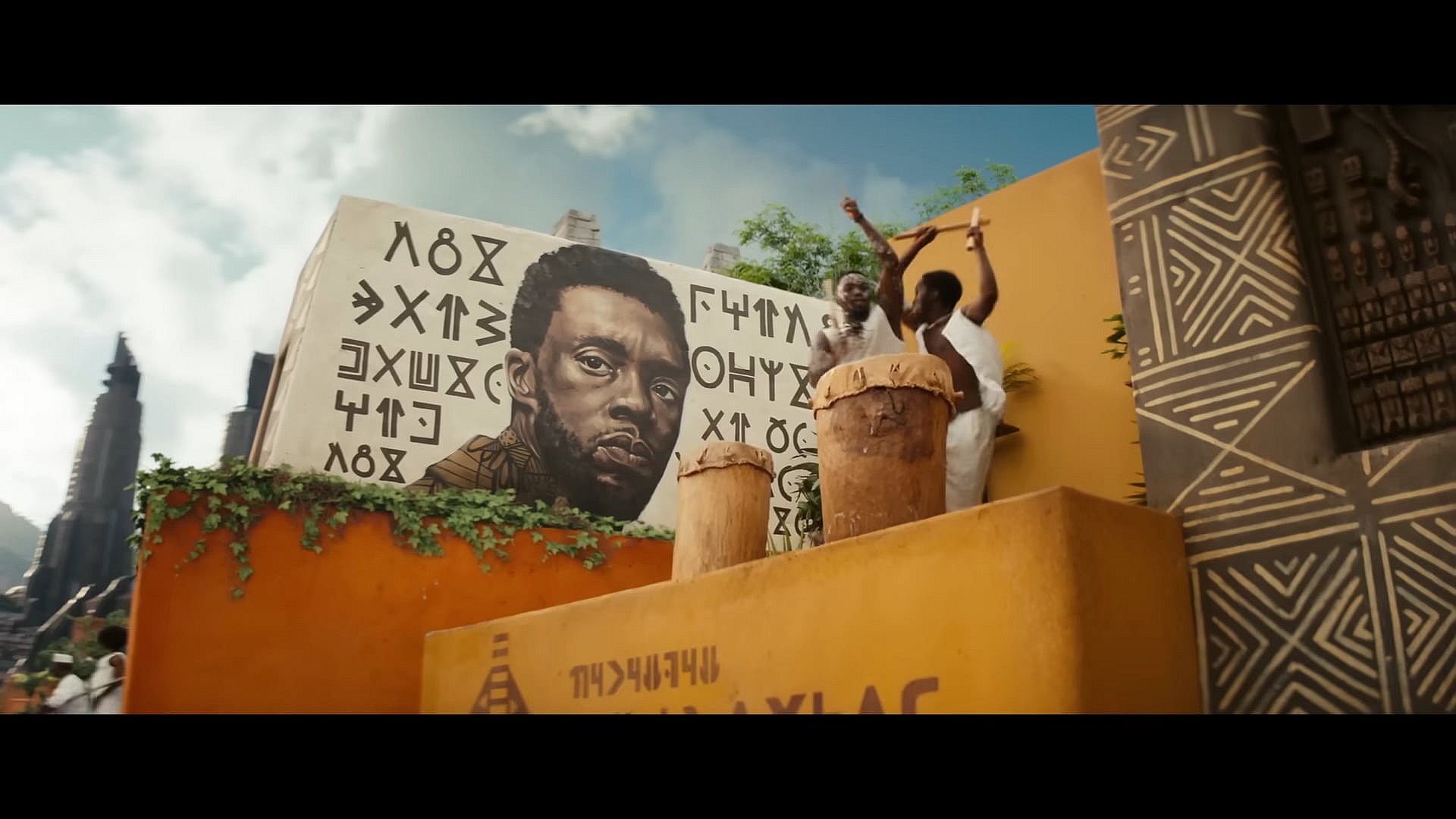Rumor: Marvel Scaling Back ‘Black Panther: Wakanda Forever’ Merch Plans Out Of Concern That Sequel’s Lack Of T’Challa May Alienate Black Male Audiences

Though titular African super hero’s ‘brand’ has done gangbusters for Marvel’s financial back end ever since his debut, a new rumor suggests that the studio is scaling back its merchandising plans for Black Panther: Wakanda Forever out of concern that the sequel’s focus on the franchise’s female characters could partially alienate the character’s key consumer demographic of black men.

Following the untimely passing of original Black Panther actor Chadwick Boseman, a major topic of discussion among both fans and analysts was just how Disney and Marvel would tackle the future of Wakanda’s resident hero without the franchise’s star.

Yet, with the slow trickling out of the film’s promotional material, it soon became evident that the sequel would center around T’challa’s female allies, including his sister Shuri (Letita Wright), Dora Milaje leader Okoye (Danai Gurira), his former love interest Nakia (Lupita Nyong’o), and their newfound companion Riri Williams (Dominique Thorne).
However, despite the Black Panther ‘brand’ having become one of Marvel’s biggest, particularly among black audiences, it appears that Wakanda Forever’s lack of a male lead – and to a certain extent Boseman’s performance specifically – has the studio taking a far more cautious approach to the film’s merchandising.

RELATED: ‘Black Panther: Wakanda Forever’ Actor Tenoch Huerta Attempts To Justify Removal Of Atlantis
According to alleged insider sources whose insights were relayed directly to Bounding Into Comics by entertainment reporter and insider Valliant Renegade, “many licensed product manufacturers have cut back on their Black Panther products vs their more standard mapping for their categories with respect to what they would usually do with a property with an upcoming “over a billion dollar” exposure push.”
“This means either limiting [Wakanda Forever’s] line depth (less skus) and/or smaller production runs (which entail higher per unit costs, but reduces inventory exposure),” he added.
Surprisingly, though he admitted that “those with the colder feet are those who bring the most value-added to the product category [such as action figure manufacturers,” Valliant Renegade then revealed that this fear even extends to “categories that rely on printed visuals to deliver the license (generally cheaper, with less upfront cost loading)”.
“Recent projects have shown lowered returns, so the lower volume business case will likely be the most profitable once costs are all in,” he said. “In other words, should there be a huge merch breakthrough (which can vary significantly by category), well, manufacturers will just chase it”

As to why Marvel was expressing such caution with Wakanda Forever‘s merchandising, Valliant Renegade turned to supposed focus group findings and explained that the company’s fears stemmed from the fact that “Black Panther is not a ‘property’ or a ‘mantle’,” but rather “a very specific character” whose “appeal is very ‘male’, even more than usual.”
“This seems especially true with black men,” he highlighted, clarifying that a more intricate focus study would be needed to confirm this observation as fact.

“The perception of the hero is not only from [his solo] movie, but is the sum of all his onscreen exposure,” Valliant Renegade continued, sadly noting that “comics don’t score here.”
“Black men have the strongest relationship with the character, with an interesting, strong pop on the father/son dynamic,” he said. “Black men identify with the Black King, strong male figure. Word association: noble strength. How the character holds himself. They admire that in the hero; inspiring to them.”

To this end, the insider detailed that “the above carries over to fathers and sons”, as “seeing the movies was a great bonding [experience] for many black men and their sons.”

“In ‘mom’ groups this came up as ‘my husband/boyfriend/ex’ took their son to the see movies with the character in it, sometimes twice,” he said. “These outings would sometimes include a detour to a toy retailer on the way home.”
“So not only would black men see Black Panther entertainment, sometimes multiple times with different groups of friends, but would also take sons, nephews, etc. to them,” Valliant Renegade added. “Now that’s how you rack-up multiple viewings. Some very nice focus stories to hear right there.”

RELATED: Black Panther: Wakanda Forever LEGO Sets Appear To Reveal Identity Of Marvel’s New Black Panther
Interestingly, as to the ongoing debate of whether or not Marvel should recast the role of Black Panther following Boseman’s death, Valliant Rengade revealed that “many don’t know that Mr. Bosman has passed, and those that do are totally for a recast because it’s about the character.”
“‘They recast Batman and James Bond all the time,'” he quoted of one alleged focus group attendee. “Totally spontaneous, zero overthinking. With respect to Mr. Bosman, all accord him due reverence.”

Noting that the superficial nature of these focus groups results were the result of analysts having “only looked at the character as part of the overall Avengers IP landscape”, Valliant Renegade ulltimately asserted that “The key thing though was all the male elements.”
“Black men are even less likely to buy female-IP driven merch for either themselves or their sons – fact,” he informed us.

Despite this demographic mismatch, Marvel still reportedly has “hope that the upcoming Black Panther film, while female focused, won’t be [written in a way] so as to not deliver on the above.”
However, to this end, Valliant Renegade concluded his report to us with the particularly interesting observation that “from what we’ve seen, those who know the key story beats, while keeping their NDA’d thoughts to themselves, are among those proceeding with the most caution.”

Fans can find out the results of Marvel’s Boseman-less roll of the dice when Black Panther: Wakanda Forever hits theaters on November 11th.

